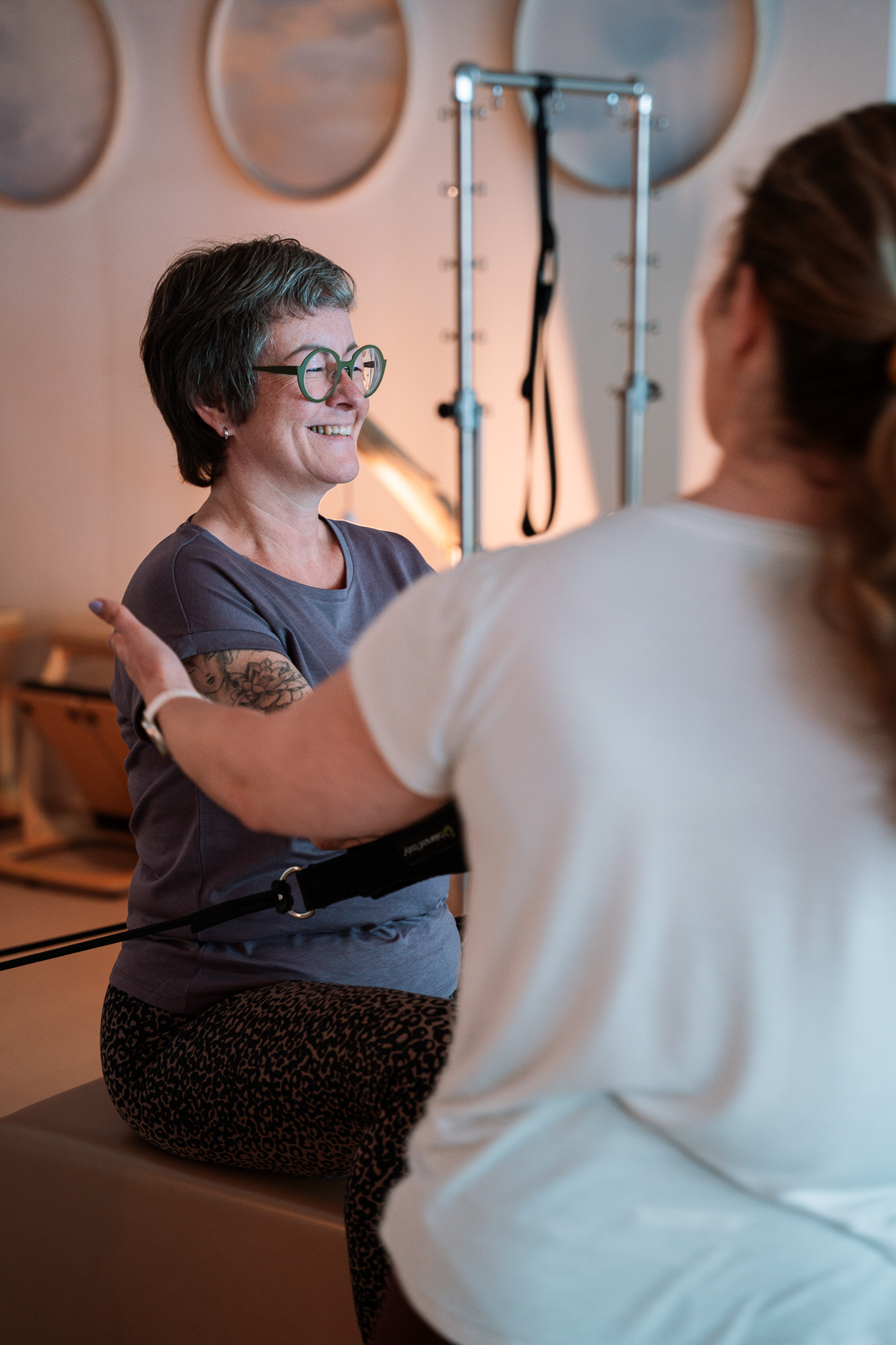Understanding menopause: a natural transition with complex layers
At Waves Leuven, we believe in supporting people through all stages of life. One transition that deserves more attention, compassion, and clarity is menopause.
At Waves Leuven, we believe in supporting people through all stages of life. One transition that deserves more attention, compassion, and clarity is menopause.
Menopause marks the natural end of a woman’s reproductive years. It is officially defined as the point when you’ve gone 12 consecutive months without a menstrual period — and it typically occurs between the ages of 45 and 55.
But menopause isn’t just a moment — it’s a transition that happens over time, influenced by changes in hormone levels, particularly a gradual decline in oestrogen and progesterone.
We often divide this transition into three phases:
Menopause is a natural biological process, but it can also be triggered prematurely by medical interventions such as chemotherapy or surgical removal of the ovaries [5].


The changes associated with menopause are not limited to the reproductive system. In fact, fluctuating and declining oestrogen levels affect almost every system in the body.
Symptoms may include:
Lower oestrogen levels during and after menopause can have significant long-term health implications like a higher chance for developing conditions like cardiovascular disease and osteoporosis [5].
These risks highlight the importance of a proactive approach to health, focusing not only on symptom relief but also on long-term wellbeing. A healthy diet, regular physical activity, and avoiding smoking are essential foundations.
The good news: support is available!


Incorporating strength or resistance training 2 to 3 times per week has been shown to [7]:
At Waves, we work with women navigating menopause in both our Clinical Gym and Pilates settings. Whether you’re looking for targeted strength work, pelvic floor support, or mindful movement, our multidisciplinary team is here to guide you in a way that respects your body and goals.
One of the biggest challenges women face in this life phase is silence. Many feel unprepared, unsupported, or unsure of where to turn. At Waves, we believe in breaking the stigma and creating space for open, informed conversations around menopause and ageing.
Curious about how exercise and holistic care can support your menopausal transition? You are warmly welcomed. For an individual intake interview, a targeted group lesson or just a chat – feel free to reach out via hello@wavesleuven.be or contact us via the website
Author: Femke Rits
Disclaimer: This site cannot and doesn’t contain medical/health advice. The medical/health information is provided for general informational and educational purposes only and is not a substitute for professional advice. Accordingly, before taking any actions based upon such information, we encourage you to consult with the appropriate professionals.
Badawy, Y., Spector, A., Li, Z., & Desai, R. (2024). The risk of depression in the menopausal stages: A systematic review and meta-analysis. Journal of Affective Disorders, 357, 126–133. https://doi.org/10.1016/j.jad.2024.04.041
Fang, Y., Liu, F., Zhang, X., Chen, L., Liu, Y., Yang, L., … & Li, Z. (2024). Mapping global prevalence of menopausal symptoms among middle-aged women: A systematic review and meta-analysis. BMC Public Health, 24, 1767. https://doi.org/10.1186/s12889-024-19280-5
Capel-Alcaraz, A. M., García-López, H., Castro-Sánchez, A. M., Fernández-Sánchez, M., & Lara-Palomo, I. C. (2023). The efficacy of strength exercises for reducing the symptoms of menopause: A systematic review. Journal of Clinical Medicine, 12(2), 548. https://doi.org/10.3390/jcm12020548MDPI
Wasnik, V. B., Acharya, N., & Mohammad, S. (2023). Genitourinary syndrome of menopause: A narrative review focusing on its effects on the sexual health and quality of life of women. Cureus, 15(11), e48143. https://doi.org/10.7759/cureus.48143Semantic Scholar+4OUCI+4IJRCOG+4
Shuster, L. T., Rhodes, D. J., Gostout, B. S., Grossardt, B. R., & Rocca, W. A. (2010). Premature menopause or early menopause: Long-term health consequences. Maturitas, 65(2), 161–166. https://doi.org/10.1016/j.maturitas.2009.08.003SAGE Journals+6Water for Health+6Mayo Clinic+6
Faubion, S. S., Sood, R., & Kapoor, E. (2017). Genitourinary syndrome of menopause: Management strategies for the clinician. Mayo Clinic Proceedings, 92(12), 1842–1849. https://doi.org/10.1016/j.mayocp.2017.09.003ResearchGate+7e-jmm.org+7Mayo Clinic+7
Capel-Alcaraz, A. M., García-López, H., Castro-Sánchez, A. M., Fernández-Sánchez, M., & Lara-Palomo, I. C. (2023). The efficacy of strength exercises for reducing the symptoms of menopause: A systematic review. Journal of Clinical Medicine, 12(2), 548. https://doi.org/10.3390/jcm12020548MDPI